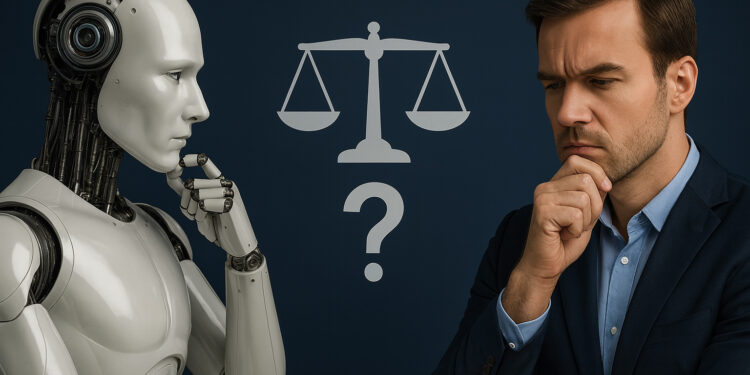Artificial Intelligence (AI) is advancing at a pace that challenges not only technology but also our understanding of morality. As machines increasingly take on roles that affect human lives—from self-driving cars to healthcare diagnostics—the question arises: can AI make moral decisions? The ethical implications of AI are complex, involving issues of accountability, fairness, and bias. Understanding these challenges is essential as we navigate the intersection of human values and machine intelligence.
1. The Challenge of Programming Morality
Unlike humans, machines lack emotions, empathy, and personal judgment. AI systems rely solely on data, algorithms, and predefined rules to make decisions. The difficulty lies in translating human ethics—often subjective and situational—into mathematical logic. For example, how should a self-driving car choose between two harmful outcomes? These dilemmas highlight the limits of coding morality into machines.
2. Bias in Data and Decision-Making
AI learns from the data it’s trained on, and if that data contains human bias, the system can unintentionally reproduce or amplify it. This has been seen in hiring algorithms, predictive policing, and credit scoring tools that disadvantage certain groups. Ethical AI requires diverse data, transparency, and continuous human oversight to prevent unfair outcomes.
3. Accountability: Who’s Responsible When AI Fails?
When an AI-driven decision causes harm, determining accountability is complex. Should responsibility lie with the developer, the user, or the machine itself? Current legal and ethical frameworks are still catching up. To build trust, organizations must establish clear accountability models, ensuring that AI operates under strict ethical standards and human review.
4. The Role of Human Oversight
Despite their intelligence, AI systems should not make critical moral decisions without human input. Human oversight ensures that empathy, cultural understanding, and context are part of the process. Ethical AI design prioritizes collaboration—machines provide data-driven insights, while humans bring judgment, compassion, and moral reasoning.
5. Toward Ethical AI Development
The future of ethical AI depends on designing systems guided by transparency, fairness, and responsibility. Governments, technologists, and ethicists are working to create frameworks for “explainable AI,” ensuring that decisions made by machines can be understood and audited. Ultimately, AI ethics is not just about technology—it’s about aligning innovation with humanity’s core values.
Conclusion
While machines can process information faster and more accurately than humans, they lack the moral compass that defines ethical decision-making. The real challenge lies in ensuring that AI serves humanity’s best interests rather than replacing human judgment. As we move forward, the goal should not be to make AI moral—but to make it accountable, transparent, and guided by human ethics.


